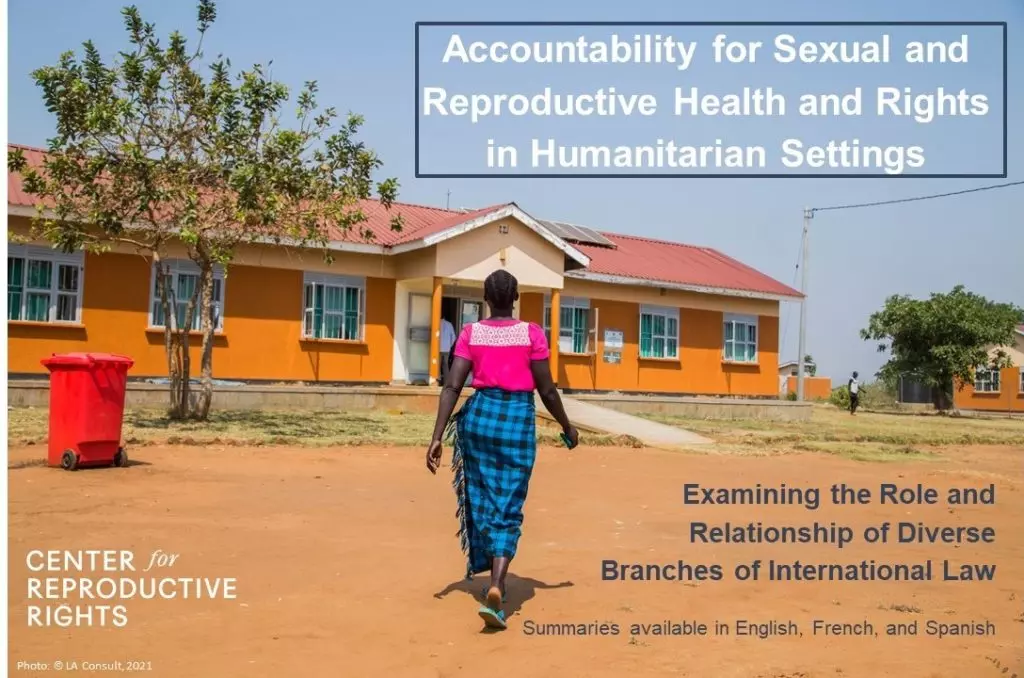Technical Paper: Accountability for Sexual and Reproductive Health and Rights in Humanitarian Settings
Examining the Role and Relationship of Diverse Branches of International Law
This technical paper examines obligations under international law and commitments made by states at the UN regarding access to sexual and reproductive health information and services for civilians in humanitarian settings, including in armed conflict.
Despite the growing numbers of persons living in humanitarian settings, including armed conflict, and the growing recognition of the need to ensure the sexual and reproductive health and rights (SRHR) of persons living in these contexts, gaps in the provision of sexual and reproductive health (SRH) services persist, with dire consequences.
For example:
- In countries designated as fragile states, the estimated lifetime risk of maternal mortality is 1 in 54, compared to a worldwide risk of 1 in 180;
- Notably, 66% of the globe’s maternal deaths occur in fragile settings, totaling more than 500 deaths each day;
- Sexual and gender-based violence in humanitarian settings is rampant and has a range of SRHR consequences;
- The impact of the current COVID-19 pandemic is amplified for those living in existing and emerging humanitarian crises and for those affected by conflict.
The absence of accountability, including remedy and redress, for SRHR violations continues to be a key feature across humanitarian settings. While human rights accountability entails multiple forms of monitoring, review, and oversight (e.g., administrative, social, political, and legal), and applies to multiple actors, this paper, titled Accountability for Sexual and Reproductive Health and Rights in Humanitarian Settings: Examining the Role and Relationship of Diverse Branches of International Law, focuses primarily on legal accountability.
The paper sets forth obligations under three branches of international law—international human rights law, international humanitarian law, and international criminal law—and commitments made by states at the UN Human Rights Council and the UN Security Council, in relation to access to SRH information and services for civilians in humanitarian settings, including in armed conflict. It also interrogates the interaction and relationship between these various branches of law and identifies strengths and weaknesses in legal accountability mechanisms and protections in this context. Finally, it sets forth key considerations for the development of strategies to ensure accountability for SRHR in humanitarian settings, including the complementary nature of these branches of law and the important role that international human rights law can play in helping shape, understand, and interpret legal obligations on SRHR across all the branches of law.
Download the full paper here:
